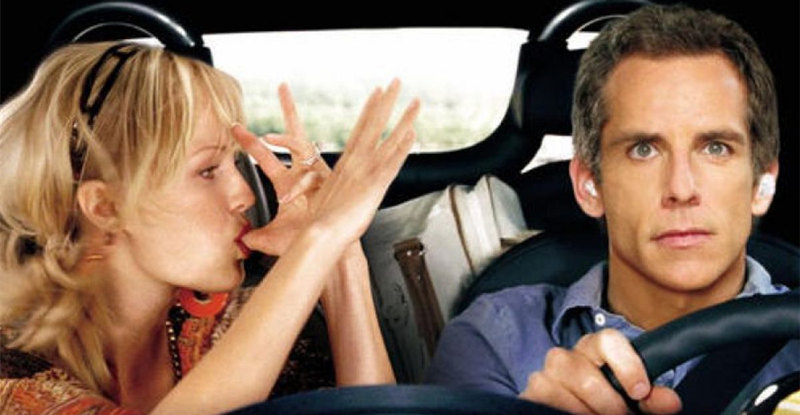“Fruitvale Station” is the best film about the Black experience in modern day America since “Do the Right Thing.” It is just as good as other films that attempt to comment on and contextualize the plight Black men endure in our country, including “Boyz n the Hood” and “Hoop Dreams.” It is better than 2004’s “Crash” in its depiction of an individual’s intersectionality within his community and the pain his day’s endeavors inflict on his loved ones. In other, perhaps more quotable, words, “Fruitvale Station” is the best American film made in 2013.
I was born and raised about 25 miles away from where 22-year old Oscar Grant was murdered on January 1, 2009. Oakland, California is a wonderful city, rich with ethnic and cultural diversity, great restaurants, a strong appreciation for the arts and the outdoors. It is also a community that has suffered more than its share of social struggles, ranging from education funding to immigrant inclusion to police mistrust to poverty and crime. Despite all it has to offer, Oakland is often the Bay Area’s dark spot, known for its high annual murder rate and other violent crime more so than the good it offers. It plays second fiddle to San Francisco and countless richer, whiter suburbs that steal the economic, political and social spotlight. I’ve been attending Oakland A’s baseball games every year since I was born. I love Oakland’s Chinatown, Jack London Square and its beautiful hilly exterior. I ran the 2011 Oakland Marathon and got to experience 26.2 memorable miles in a city I want to make it ever so badly. And what I loved most about “Fruitvale Station” was how it presented Oakland and Oscar as two separate entities riddled with parallels: people judge both, people stereotype both and people see both Oakland and Oscar as problem children.
I will attempt to not let my personal feelings spill into this review, but considering I’ve boarded Bay Area Rapid Transit (BART) trains at the very station where Grant was shot many times en route to the Oakland Coliseum, and considering I’ve studied the problems people and communities of color have had with law enforcement in the United States in the classroom, and considering the fact that very recently a national court case surrounding the death of a young Black man named Trayvon Martin remains fresh on our country’s psyche at the time of this writing, it’s going to be tough. But regardless of how I feel, there’s no denying that “Fruitvale Station” is emotional, powerful filmmaking that drips with authenticity in a way that refreshes as it draws you in, only to kick you in the gut and leave you gasping for air when its tragic, racist and violent climax occurs.
“Fruitvale Station” is a must-see for anyone who seeks a film where unintended social commentary is a prominent feature, yet manages to avoid making this into a crutch. It presents its story, its surprisingly deep characters and the horrific conclusion to a case that engulfed the Bay Area with protests, violence and despair in ways not seen in California since the Rodney King verdict. It was also made with support from a ton of all-stars, including Academy Award winners Forrest Whitaker (producer) and Octavia Spencer (co-executive producer and co-star). First-time director Ryan Coogler, a graduate from the internationally famous USC Film School, also wrote the script, and will undoubtedly become a staple name on lists that feature the next wave of passionate, talented and gifted filmmakers. “Fruitvale Station” also walked away from the Sundance Film Festival in January 2013 with the Audience Award and Grand Jury Prize for a United States dramatic film. It held its own at Cannes in May 2013, with nominations for the Camera d’Or, the Grand Prix d’Un Certain Regard and a win of the Prix de L’Avenir d’Un Certain Regard. It may be premature, but unless something better and more powerful comes along, you had better carve out room on Oscar night next February for “Fruitvale Station.”
Oscar (Michael B. Jordan) is struggling to make his life better. He’s lost his job, is trying to prove his worth to his girlfriend Sophina (Melonie Diaz), fighting to set a good example for his young daughter Tatiana (Ariana Neal) and is reestablishing himself as a good son to his mother Wanda (Spencer). We meet Oscar on New Year’s Eve, and follow his errands, which include pumping gas, comforting an injured stray dog, shopping for groceries, dropping off and picking up Tatiana and Sophina, and flashing back to his stay in state prison a year ago as motivation for dumping a bag of marijuana into the Bay rather than selling it. Following a birthday celebration dinner for his mother, Oscar and Sophina meet up with friends and board a BART train in South Hayward (about halfway between Oakland and San Jose) bound for San Francisco’s fireworks show.
On the train ride home, at roughly 2:15 am, Oscar gets into a fight with a former inmate he ran into while incarcerated. Their train is stopped at Fruitvale Station, just a few miles southeast of downtown Oakland, and BART police officers yank Oscar and his friends out of their car to interrogate them on the platform. It’s in the film reviewer’s code to not reveal spoilers or other details, but if you follow national media, chances are you know that Oscar Grant was shot while being detained, and ultimately died just a few hours later in an Oakland hospital. The officer who fired his weapon was charged with murder, convicted of involuntary manslaughter, sentenced to 2 years in prison and released after 11 months. He claimed that he reached for his taser and intended to use it on Oscar, but pulled his firearm instead.
The magic to “Fruitvale Station” is so simple. It opens a window into a very real world that many of us who don’t belong in that space would prefer to believe just doesn’t exist. In the United States, Black men suffer extreme racial prejudice at the hands of a society they serve just the same as everyone else. They are far more likely to be pulled over by police officers, arrested for petty offenses, convicted by our courts and incarcerated for longer periods of time. They overpopulate our prisons and jails, are followed by retail employees when they set foot in a store and are depicted in our national media as entertainers, athletes or thugs. “Fruitvale Station” doesn’t need this ammo to make its point, but it hints at it just enough to where you can tell that Coogler is speaking from the heart. After all, he is a young Black male from the very same streets where Oscar died.
I appreciated the film’s creative pace, its vivid approach to character depiction and its superb casting. Jordan is a young Black star in the making, and with little doubt in my mind, “Fruitvale Station” will be remembered as his breakout role. Diaz is a powerful female, mildly sexualized but also blessed with a spine she doesn’t hesitate to remind the audience she possesses, especially when letting Oscar know who the boss is. Spencer is bold and grounding as Oscar’s mother. She rides an emotional roller coaster during “Fruitvale Station,” and it is her belief in her troubled son that lends Jordan’s performance all the credibility it could ever need. Oscar and his friends look as they should: baggy clothes, tattoos and hoodies. These are the men who America has become so afraid of that we are willing to crucify them before listening to them.
As a film, “Fruitvale Station” does a lot without very much. Its less than $1 million budget was meager at best, but it was shot on location in the Bay Area, including on BART trains and in the system’s stations. Its appeal as an independent title will probably mean a smaller box office take, and its timing as it relates to the events in Florida seems eerily fitting. With raw emotion and fearless direction, “Fruitvale Station” furthered my interest in a subject I often consider myself to be knowledgeable about, but know in my heart I will always have to understand from an outsider’s perspective.
Oscar Grant was hardly perfect, and “Fruitvale Station” depicts him as such. He had his baggage and struggled to make the changes he needed to redirect his life. But neither he, nor any other soul, deserved to meet such a fate. “Fruitvale Station” offers this message in a context that squeezes your emotions while maddening your mind toward a deeper understanding of hegemony and social injustice. It forces you to think, challenges how you see our still racially imperfect world and demands that difficult but necessary conversations be had in order to further a progress our politicians hint at but our Black citizens continue to only dream about.
This is a film that stands up, demands our attention, challenges us to watch its difficult content and wants ever so badly to articulate how badly the collective “we” must not look at the problems Oscar faced in his life and community as Black problems, but as American problems. “Fruitvale Station” is powerful, sharp, dynamic and greatly entertaining. A limited release in early July has been followed by a broader distribution in late July. See it. Your conscience will thank you for doing so. I know mine did.


